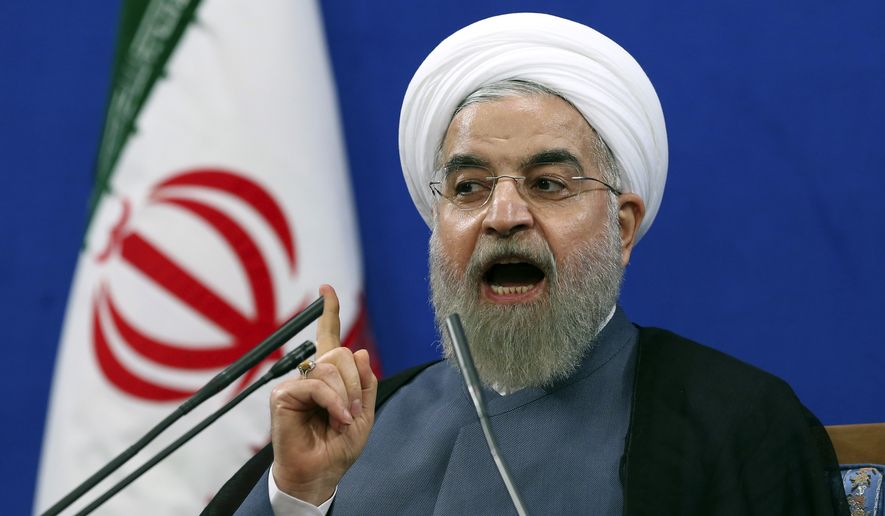Iran could start to see economic benefits within four months of the lifting of U.S. and international sanctions from a pending nuclear deal, according a report released Tuesday by a security think tank.
The Iranian energy sector is poised to expand oil production by up to 1 million barrels per day and is looking for international bidders for 40 development projects, said the report by the Center for New American Security in Washington.
“Iran could see sanctions relief starting toward the end of 2015 at the earliest,” the report said, adding that Tehran also plans to embark quickly on plans to expand production of its lucrative natural-gas fields and long-term development of liquefied natural-gas exports.
The study also said the potential for Congress to delay the lifting of sanctions is a “significant cause for private sector caution” in seeking to invest in Iran.
“U.S. legislators are planning to pause implementation of a potential nuclear deal by at least a month from when it is announced while they review its provisions, and may ultimately vote to disapprove a deal,” the report said.
“Creating obstacles for the … implementation of a nuclear deal undermines the agreement, the cohesion between the United States and its international allies, and Iran’s incentive to abide by a deal.”
The U.S. and other world powers are approaching a June 30 deadline in talks with Iran to impose new restrictions on its nuclear program in return for lifting of sanctions. Iran’s leaders are insisting on the immediate lifting of sanctions, but the U.S. has said sanctions would be eased gradually.
The study also said that the Obama administration should make sure that allies and private companies understand exactly how sanctions would be reinstated if Iran is caught cheating in its nuclear program.
“This guidance should offer an unprecedented level of specific detail on the degree of continuing exposure to U.S. sanctions for non-U.S. banks and companies, as well as the priority concerns for financial regulators, overseers, and enforcement officials,” the report said. “This would help to mitigate confusion and cheating on sanctions.”
The report was authored by Elizabeth Rosenberg, director of the energy, economics, and security program at CNAS, and Sara Vakhshouri, president of SVB Energy International LLC, an energy consulting firm based in Washington.
• Dave Boyer can be reached at dboyer@washingtontimes.com.




Please read our comment policy before commenting.